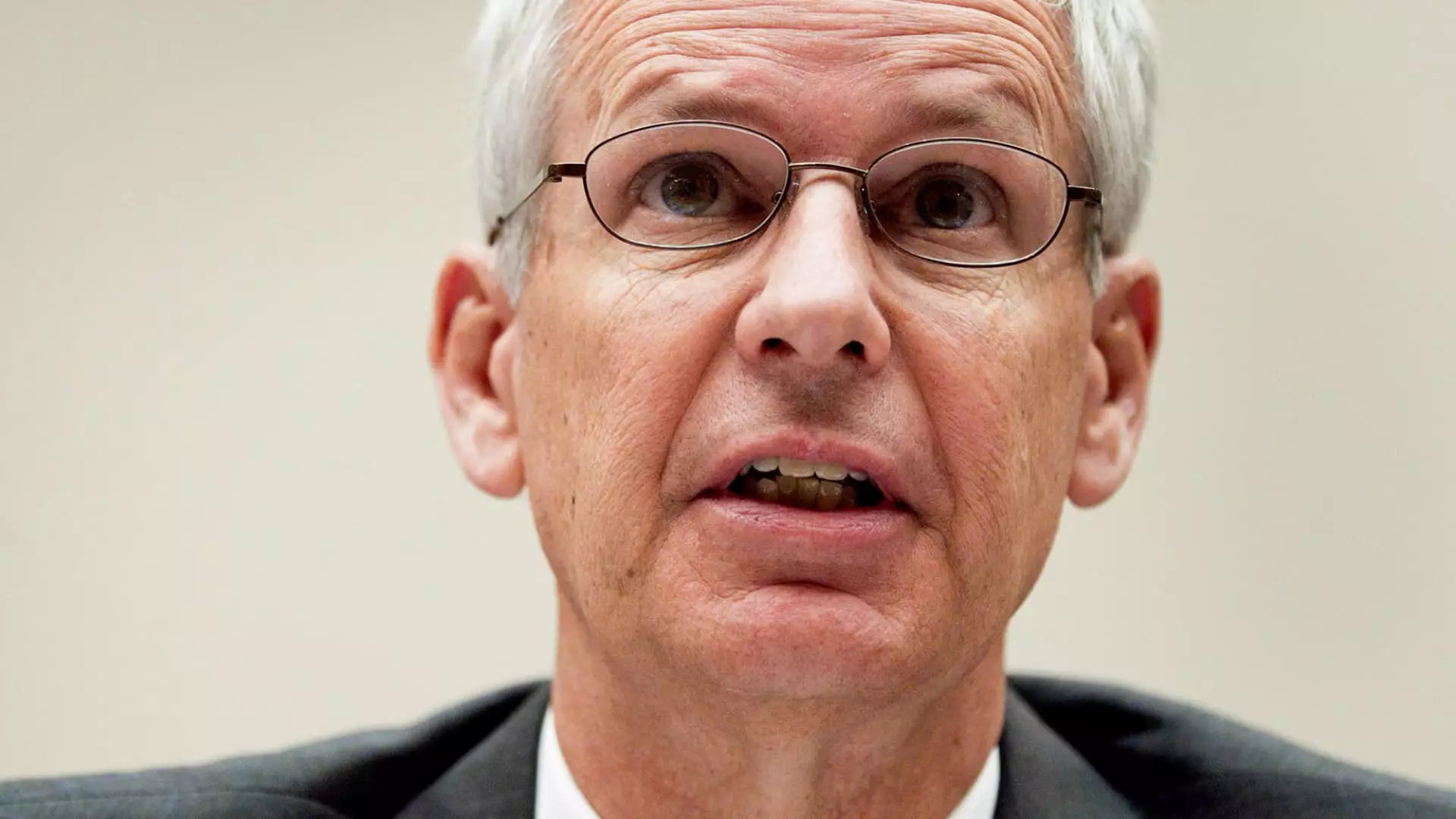The tale of Dish Network closely resembles the narrative arc of a sitcom that peaked in its prime but ultimately faltered in its concluding act. Following a trajectory filled with ambition and potential, the company recently reached a pivotal crossroads resulting in what many might view as a lackluster finale. Marked by a significant shift in ownership, Dish Network’s fate now seems caught in a downward spiral akin to the iconic, yet controversial, conclusion of “Seinfeld.”
In a move that echoes the disorganized, but often creatively delightful, narrative style of “Seinfeld,” EchoStar—Dish’s parent company—finalized its decision to sell Dish Network to DirecTV for a symbolic $1, compounded with a staggering $9.75 billion in company debt. The announcement led to a sharp decline in EchoStar’s stock, dipping over 11%. This financial jolt underscores the reality of a company struggling to adapt to a rapidly evolving market landscape, having suffered substantial losses in video subscribers, partly due to the rise of streaming services.
EchoStar’s CEO, Hamid Akhavan, candidly articulated the challenges facing traditional content distribution. “Times have changed,” he noted in a recent interview, spotlighting the industry’s broader struggle to retain its footing amid robust competition from platforms that provide high-speed broadband and streaming options. With traditional pay-TV models increasingly falling by the wayside, Dish Network found itself at an impasse, devoid of both a clear direction and the subscriber base necessary to support its ventures.
The ambitions of Dish Network have long been marked by a desire to diversify and innovate, a strategy that once held promise. Charlie Ergen, co-founder of the company, often painted a picture of various pathways taken by Dish, illustrating aspirations through metaphoric gestures. He spoke of potential synergies between the satellite TV business and wireless services, as Dish sought a foothold in the mobile space by acquiring Boost Mobile from T-Mobile for $1.4 billion in 2019.
However, the retrospective view of these strategies indicates more of a struggle than success. The wireless business, despite its acquisition, lacked the necessary resources for proper development. Akhavan’s admission that “we couldn’t feed [the wireless] business properly” underscores a fundamental imbalance in the company’s operational focus. The parallel to “Seinfeld” resonates here, as the show’s storyline often meandered, losing its thread until the very end. Dish’s strategy mirrored this lack of cohesion, leading to disarray within the management structure.
A pivotal factor contributing to Dish Network’s decline has been the significant loss of subscribers, a staggering 63% alongside DirecTV since 2016. As viewership migrated from traditional television to streaming platforms, Dish increasingly found itself playing catch-up in a competitive landscape. While companies like Comcast and Charter adapted their offerings with advanced technology and service packages, Dish could not maintain its momentum, leaving its once-thriving subscriber base to dwindle.
The comparative analysis of Dish’s current state mirrors the decline in quality and attention in “Seinfeld” leading up to its finale. Fans anticipated the culmination of character arcs and storylines, but were instead met with disillusionment. For viewers and industry analysts alike, Dish’s future feels similarly anticlimactic—aspirations unfulfilled, with a failing business model that struggled to resonate in an era dominated by streaming innovations.
In hindsight, Dish Network’s journey serves as a cautionary tale within the media and telecommunications landscape. The attempt to diversify while managing a crumbling core business proved overambitious, resulting in an unwieldy strategy that blurred the company’s focus. Notably, the mixture of ambitions, akin to the episodic chaos of “Seinfeld,” lacked the vital threads necessary to weave together a satisfying conclusion.
As the credits roll on this chapter of Dish Network, one can only hope its experience will contribute to a more coherent narrative in the future. The lessons contained within this saga may reverberate in broader industry choices, highlighting the importance of adaptability in an ever-accelerating digital age. In the end, just as “Seinfeld” concluded, this story too stands as a reminder that even enduring legacies can fade in the face of changing trends and expectations.


Leave a Reply